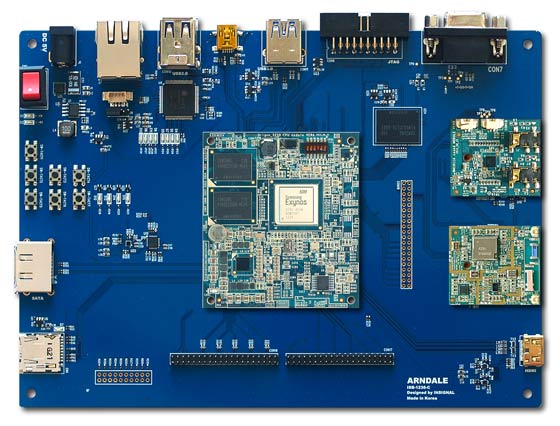A new European supercomputer based in Barcelona will be powered Samsung Exynos 5 Dual ARM Cortex-A15 based processors. The new supercomputer initiative, called the Mont-Blanc Project, is the world’s first major ARM-based HPC (high-performance computing) research project. As stated on the project’s introductory page “ARM processors have not been designed for HPC, and ARM chips have never used in HPC systems before, leading to a number of significant challenges.” The project is looking to make supercomputers powerful enough to slot into the TOP500 list yet with an energy efficiency never seen before. The first ARM based supercomputer born from this project is expected to be operational by the end of 2013.

Alex Ramirez, the research manager for the Mont-Blanc project said “What we want to prove is that one can build an HPC system out of commodity components”. To this end the team have chosen the popular and powerful Exynos 5 SoC. The 32nm low-power HKMG Samsung Exynos 5 Dual processor features a dual core 1.7GHz CPU based upon the ARM Cortex-A15 architecture and has an integrated ARM Mali-T604 GPU.
Ramirez appraises the Samsung processor thus: “The Exynos 5 Dual packs the most powerful ARM processors with a programmable GPU in a low-power mobile device that would normally be in someone’s pocket and running on a battery. Its performance density, energy efficiency, and low market price make it an extraordinary building block for prototyping a new generation of HPC systems.” This Samsung manufactured processor is currently used in the Samsung Google Nexus 10 and in the latest Samsung Chromebook. The Exynos 5 is a 32-bit processor but the project team are expecting to utilise an upcoming generation 64-bit ARM chip from 2014.

Ramirez asks “So what's going to happen when we put 2,000 of these sockets in a rack?” He went on to partly answer his own question; “There are a number of unknowns that may actually prevent us from building a high-density solution with them” most likely the team will face some heat and interconnect issues. However the team is quite confident that such obstacles can be defeated and that “it may be possible to build a 200 petaflop system by around 2017 that uses only 10MW of power”. Compare this figure to the TOP500 leadingTitan Cray system in the news earlier this week which achieves 20 petaflops using 9MW of power. Let’s hope the researchers make good progress.













